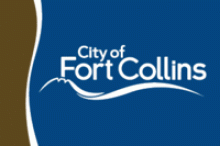More Colorado Towns Put Opt Out Question on The Ballot
This November, more Colorado towns and counties will be voting on whether to opt out of the 12-year-old SB 152, a state law that restricts broadband development.
Sweeping Out the Old
Senate Bill 152 has hindered communities’ ability to invest in Internet infrastructure and provide service themselves or with private sector partners. Many communities are realizing that national carriers can’t be relied on to provide high-quality Internet access. To date, at least 98 communities across the state of Colorado have voted to reclaim local telecommunications authority by opting out of SB 152; a handful are considering actually pursuing a publicly owned network.
Opening the Door for Options
For some towns and counties, the ballot question is simply a way to keep their options open and to reclaim local authority that the state took away in 2005. As we’ve seen in Westminister, Maryland, public-private partnerships can be a great option for communities. Being out from under SB 152 will allow these municipalities to explore high-quality network options if the opportunity arises. Additionally, when towns give themselves the ability to explore new providers and different models, current ISPs tend to take notice and adapt accordingly. Beyond these options and ripple effects from shedding SB 152, some towns simply want autonomy and freedom from sweeping state regulation.
In Eagle County, they recognize climbing out from under SB 152 will allow them to consider more substantial steps for taking back local power and implementing a high-speed network. They’ve yet to conduct any feasibility studies but in their yearly Legislative Policy Statement they made it clear that they’re motivated to improve connectivity.
Ushering in the New



